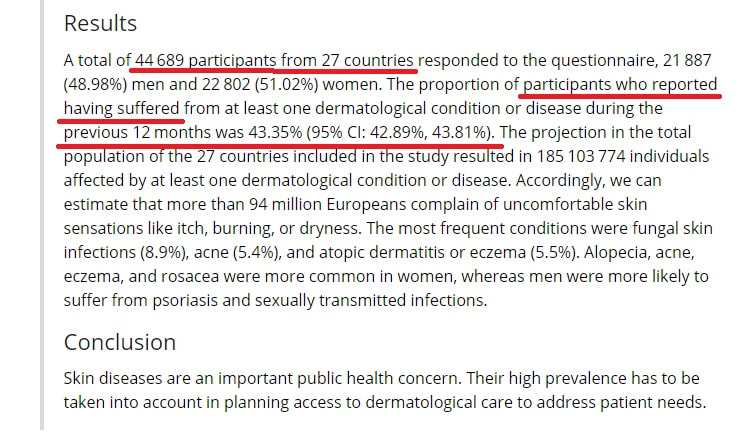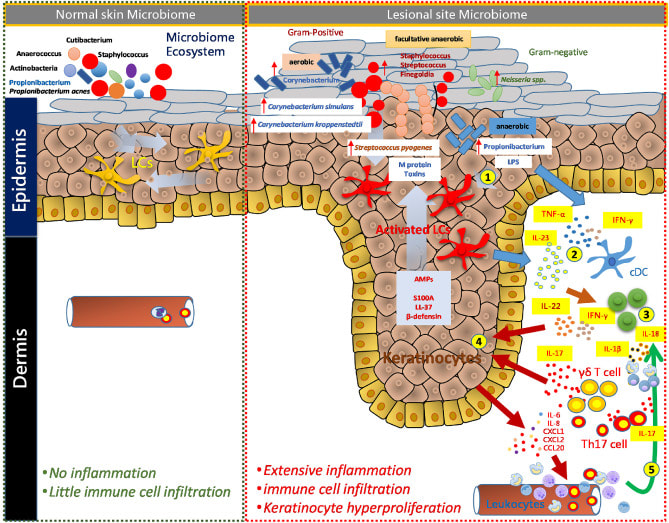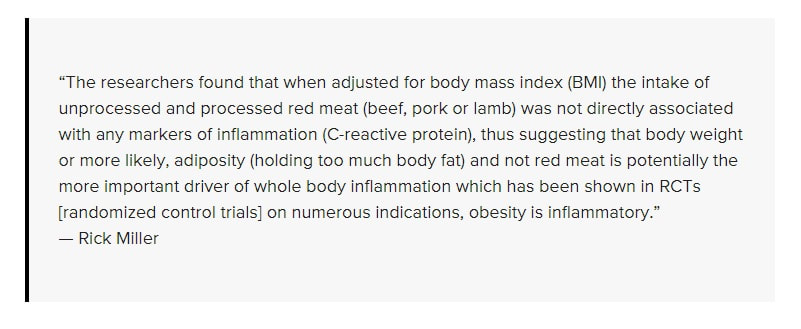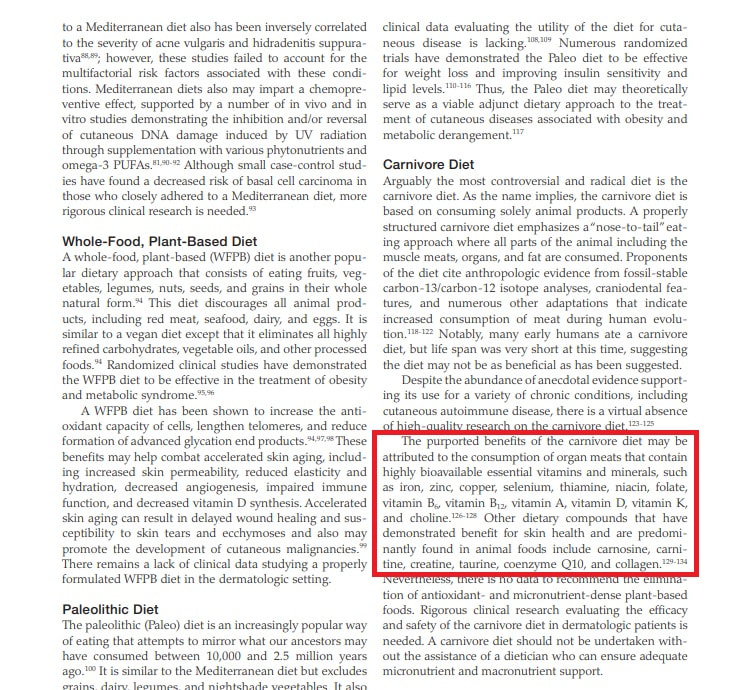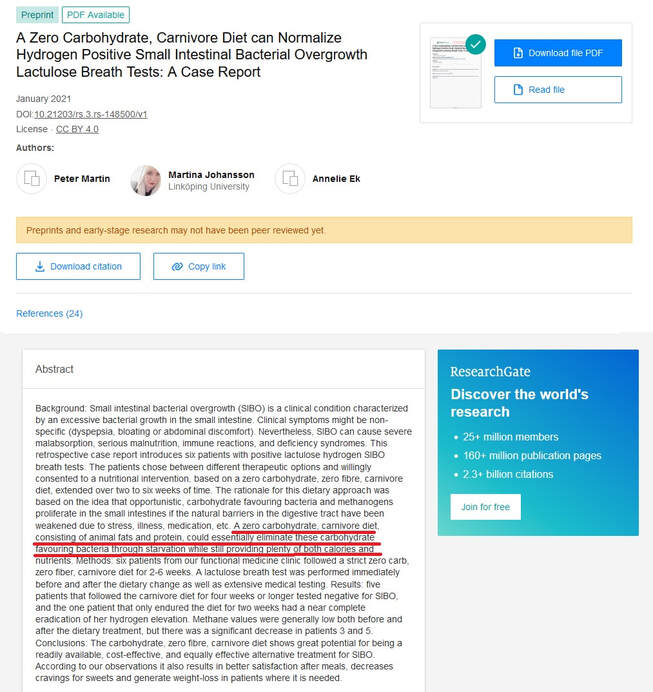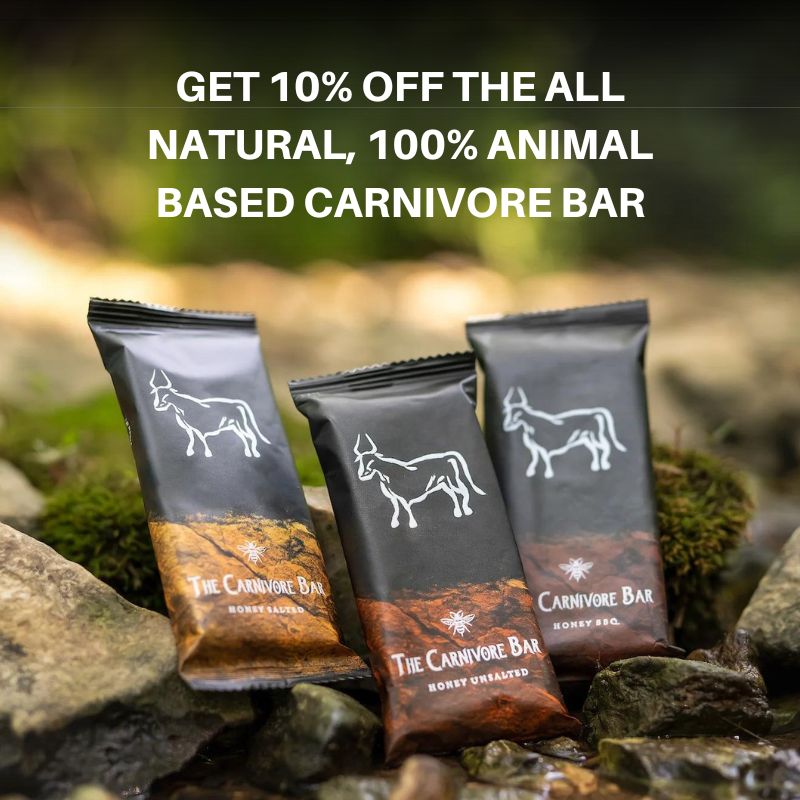|
THE COMPLETE
CARNIVORE DIET GUIDE
Learn how to lose weight, fix your gut and cure autoimmune symptoms with our free Carnivore Diet guide.
|
|
Are you struggling with a particular skin condition like acne, or are you eager to improve your skin health? If so, the carnivore diet might just be what you need to achieve clear and glowing skin. The carnivore diet is primarily made up of animal products such as, meat, fish, eggs and animal fats . The carnivore diet is high in protein and fat while low in carbohydrates. The strict version of carnivore excludes all plant-based foods such as:
Think of it as a form of the ketogenic diet that eliminates all plant-based food. It could benefit individuals struggling with skin issues such as eczema, rosacea, psoriasis, and acne. This article will explore how the carnivore diet could help your skin. Understanding Common Skin Problems
Skin conditions are surprisingly common. In a recent European study, more than 21,000 of over 44,000 participants suffered from at least one dermatological condition. That's a whopping 43% of the respondents, highlighting skin problems as a significant public health concern.
Skin issues can affect levels of confidence and may even cause irritation. As such, they could have a significant impact on your overall quality of life. Here are some of the skin conditions that could be impacting your life. Connection Between Your Diet, Your gut and Your Skin
Diet can impact skin health because food is an environmental factor affecting how your skin looks and feels. Vitamins and nutrients present in food provide benefits to the skin because they help create the barriers that protect it from environmental factors.
Studies demonstrate that a healthy balance of gut microbiota is required for the best skin health. A balanced gut microbiome creates immune and metabolic homeostasis. Changes to the gut microbiota are linked with skin conditions such as eczema and psoriasis. While prebiotics and probiotics can help your homogenous microorganisms achieve the best skin health, creating this impact with the right diet is also possible. Carnivore Diet and Skin Health
As mentioned, the carnivore diet is based on consuming animal-based foods while removing all plant-based foods from your diet. The scientific benefits of the carnivore diet are the amplified benefits of eating meat in your diet.
Recent studies also show that eating unprocessed red meat doesn't contribute to inflammation, as opposed to what science believed for a long time. The consumption of glutamine helps reduce inflammation, and as a result, it may help to resolve issues caused by autoimmune diseases. These two factors largely trigger the skin issues mentioned above. On the other hand, consuming meat rich in omega-3 fatty acids benefits both the skin and the hair. Research shows it might even positively impact skin conditions like psoriasis and dermatitis. The fatty acids present in fish and seafood help protect the skin from UV rays while improving levels of moisture throughout the skin to achieve a natural glow. Vitamin A in carnivorous foods also ensures other benefits such as strong teeth, bones, and healthy skin. Zinc is also beneficial for the skin, and it is found in high quantities in various meat products, including beef, liver, kidney, and red meat. Eating meat is correlated with improving a wide range of skin conditions, including dermatitis, eczema, and psoriasis. Carnivore Diet and Eczema
Eczema, also known as atopic dermatitis, is a chronic skin condition characterized by red, inflamed, and itchy patches on the skin. These patches can appear anywhere on the body and vary in severity. Symptoms often include dry, scaly skin, intense itching, inflammation, and sometimes oozing or crusting.
While the exact cause of eczema is not fully understood, it is believed to be influenced by genetic and environmental factors. Triggers such as allergens, certain foods, stress, irritants, and climate changes can exacerbate symptoms. Individuals with eczema may have a compromised skin barrier, leading to increased sensitivity and a higher likelihood of developing rashes and infections. The carnivore diet could benefit individuals with eczema because it removes some of the potential triggers of this condition. Plant-based foods are common triggers for individuals with eczema. It may also reduce inflammation, which is one of the leading causes of eczema flare-ups that people suffer from. The carnivore diet's reported advantages are often linked to the consumption of organ meats, rich in vital, readily absorbable nutrients such as iron, zinc, copper, selenium, thiamine, niacin, folate, vitamins B6, B12, A, D, K, and choline. These nutrients are pivotal for various bodily functions, including skin health. Additionally, animal-based foods contain compounds like carnosine, carnitine, creatine, taurine, coenzyme Q10, and collagen, which have shown potential benefits for skin health. Carnivore Diet and Rosacea
Rosacea is a chronic facial skin condition characterized by redness, swelling, visible blood vessels, and occasionally small, pus-filled bumps. Triggers such as genetics, environmental factors, and certain mites or bacteria may contribute to its onset. Common triggers include sun exposure, spicy foods, alcohol, and stress.
Management involves identifying triggers, gentle skincare, topical treatments, and sometimes oral medications or laser therapy for reducing redness and inflammation. Various studies have shown that fixing the gut microbiome can help prevent a rosacea flare-up. You can use the carnivore diet to reset your gut by eliminating everything that feeds harmful bacteria and then slowly re-introducing probiotics, fermented foods, and prebiotics, the same or a similar nutrition plan we recommend for fixing SIBO. Carnivore Diet and Psoriasis
Psoriasis is a chronic autoimmune skin condition causing rapid skin cell buildup, resulting in red, scaly patches. Its exact cause involves immune system dysfunction, triggering excessive skin cell growth. Genetics, environment, stress, and certain medications can exacerbate it.
Traditional treatment includes topical remedies, phototherapy, oral medications, and lifestyle changes to manage symptoms, aiming to alleviate discomfort caused by red, scaly patches. Again, if you are struggling with psoriasis, eating a carnivore diet could be beneficial because it may remove potential triggers that are present in plant-based foods. While research into a connection between the carnivore diet and psoriasis is still in the early stages, the initial results are promising. Since the diet is high in protein and fat and has zero carbs, it can help reduce systemic inflammation. Like eczema, the carnivore diet benefits your skin if you have psoriasis because it contains omega-3 fatty acids and other vitamins and minerals. Furthermore, you don't have to worry about issues caused by gluten or nightshade vegetables. Plant-based amino acids interfere with your body's natural cell production process. Tips for a Successful Transition
To gain the greatest benefits from transitioning to a carnivore diet, you must approach this change correctly. First, any sudden diet change is going to be a shock to the system. That's why you need to ensure you prepare for all the possible side effects and start your transition at a pace that works for you.
You can either go immediately and deal with a difficult first few weeks. Alternatively, you can become fat-adapted by changing to the keto diet before switching to a carnivore diet. If you are only eating meat, then it's essential to ensure you vary the types of meat as much as possible. Different meats, including fish, red meat, and pork, will provide various benefits and nutrients. Be aware that with levels of inflammation down, your body will temporarily need more salt. To rectify an electrolyte imbalance, it is recommended that you add a ¼ teaspoon sea salt to your diet, followed by a glass of water 3 to 4 times each day or whenever you start to feel dehydrated. In the first few weeks of going carnivore, you could be more tired than usual, but don't panic, this is normal. Excess fatigue is a sign that your body is healing. You'll have more energy once you get through this stage. How to find meal inspirations?
Finding recipes for the carnivore diet can be specific due to its limitations on plant-based foods. Here are some ways to discover carnivore-friendly recipes:
Remember, the carnivore diet is highly restrictive, so finding various recipes may be challenging. However, these resources can offer ideas and inspiration for creating meals within the boundaries of the diet. Always prioritize balanced nutrition and consult a healthcare professional or nutritionist when making significant dietary changes. Conclusion
This article helps you understand some of the critical benefits of the carnivore diet if you are struggling with skin issues. With the carnivore diet, you will effectively remove some common triggers associated with these conditions. While none of these conditions are curable, the diet can either present the symptoms, reduce the symptoms, or ensure that flare-ups are far less severe. You can then also experiment with adding foods back one by one to identify what triggers you, as it's different for everyone.
Be aware that the carnivore diet provides other benefits not exclusive to those struggling with skin conditions. The carnivore diet can also be helpful if you seek ways to lose weight more effectively or increase your muscle mass. The trick is ensuring you follow a recommended plan when switching to this diet so your body can cope with the change.
0 Comments
Leave a Reply. |
Carnivore Diet Recipes & Meal PlansOur Trusted Partners
Popular Guides
|




